Gluten free pita or flatbreads are possible, scrumptious even, with my gfJules Gluten Free All Purpose Flour, I can assure you! You can even make these as beautiful grain-free pita breads with gfJules Nada Flour. Anything is possible with the right gluten free flour!
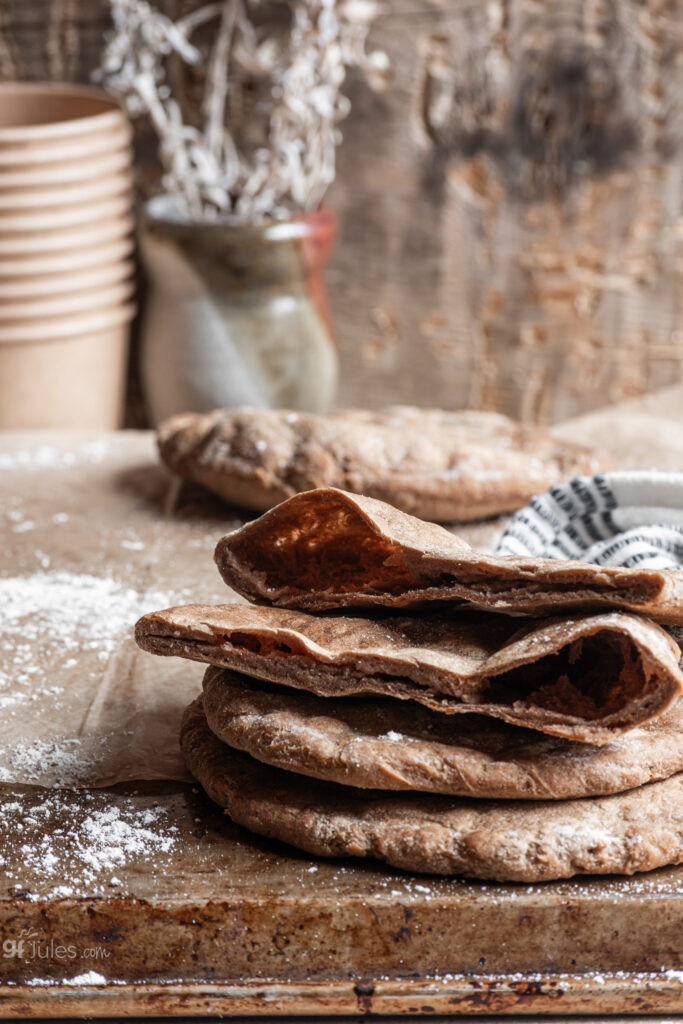
When it comes to grain-free or gluten free pita breads, this recipe is one you’re going to want to bookmark. It’s fast and easy and makes The. Best. Bread!
Yeast-free, dairy-free, egg-free / vegan, and yes, of course, gluten-free, but let’s not focus on what this recipe is missing, since this delicious and versatile bread is soon going to be full of all your favorite yummy fillings!

It holds up to whatever sandwich fixin’s you can throw into it or on it. Just like a good pita should. Or of course, you can use it for dipping.
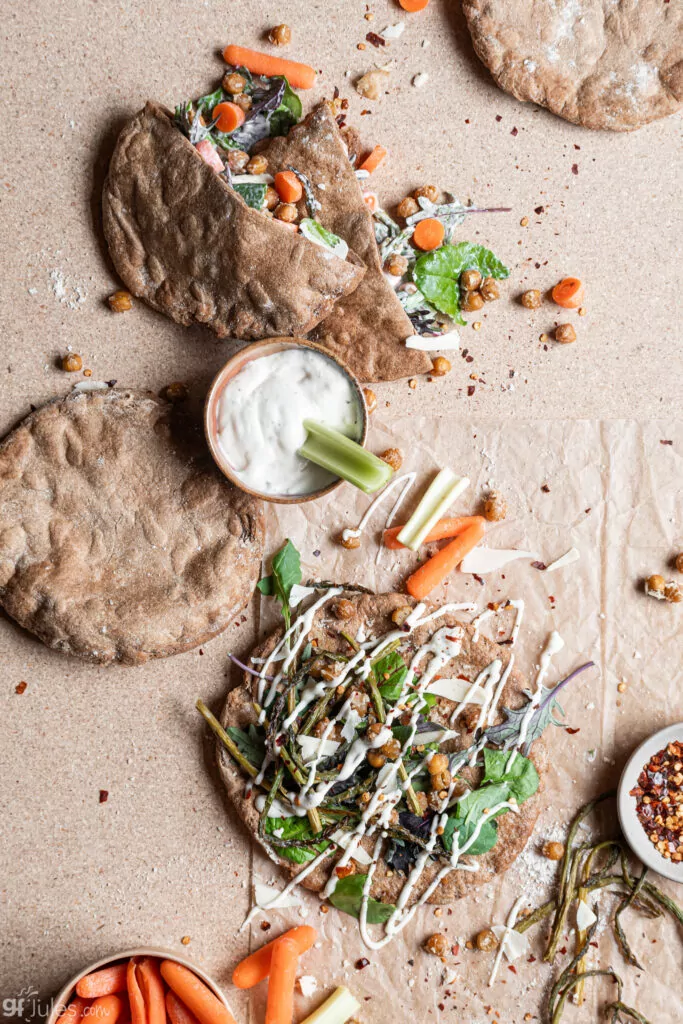
Just look at this beautiful stack. Ready in under 30 minutes — hard to beat that.
In fact, I always wonder why I don’t double the recipe because it’s so worth having these on hand in the freezer at all times for grab and go sandwiches of all kinds.
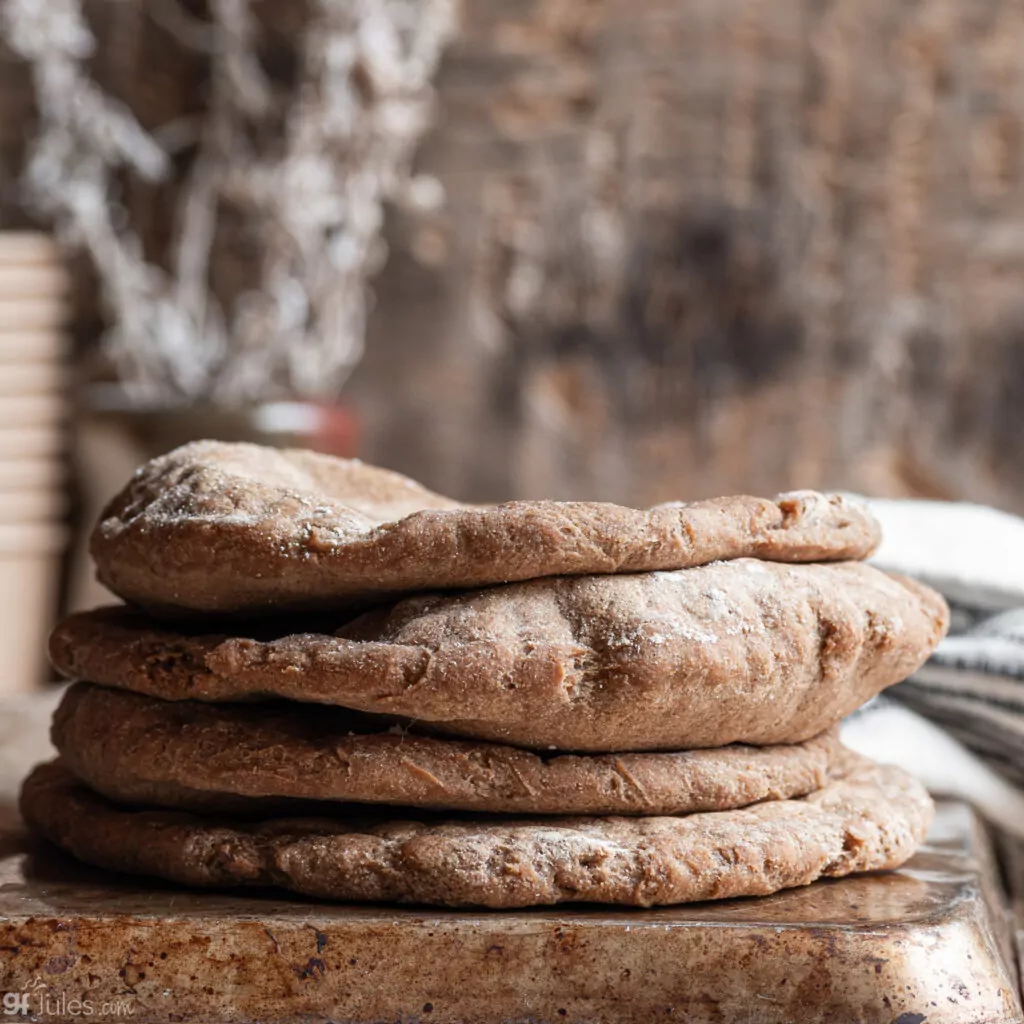
And speaking of sandwiches, remember those “sandwich thins” that used to be so great (back when we could eat wheat)?
Proportions are everything in a sandwich, and thin gluten free pita or flatbreads means more focus on the sandwich and all the goodies stuffed inside. Like fresh homegrown tomatoes … but I digress.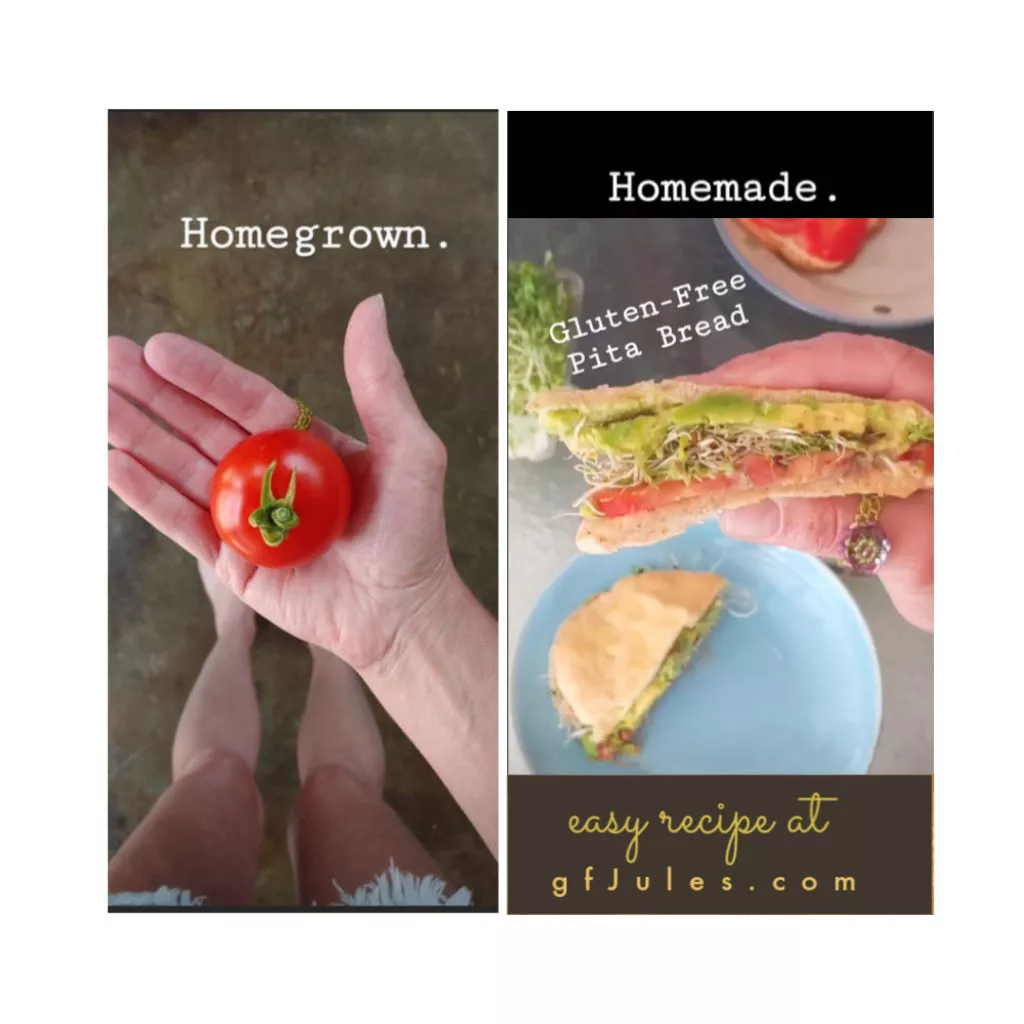
I actually developed this recipe when my oven was broken — a debilitating problem for any baker. I worked on this recipe for weeks, baking it so many times in so many different ways (and so many different ovens -thank you friends & neighbors!), that it has even occupied my dreams. (There’s hardly a dream worse for a baker than nightmares of burned bread!)
I’ve baked this gluten free pita or flatbreads recipe out at temperatures ranging from broiling to 300° F. I’ve tried it in commercial gas heat ovens, electric home ovens and even a gas grill.
Cast iron skillets are another method, believe it or not.
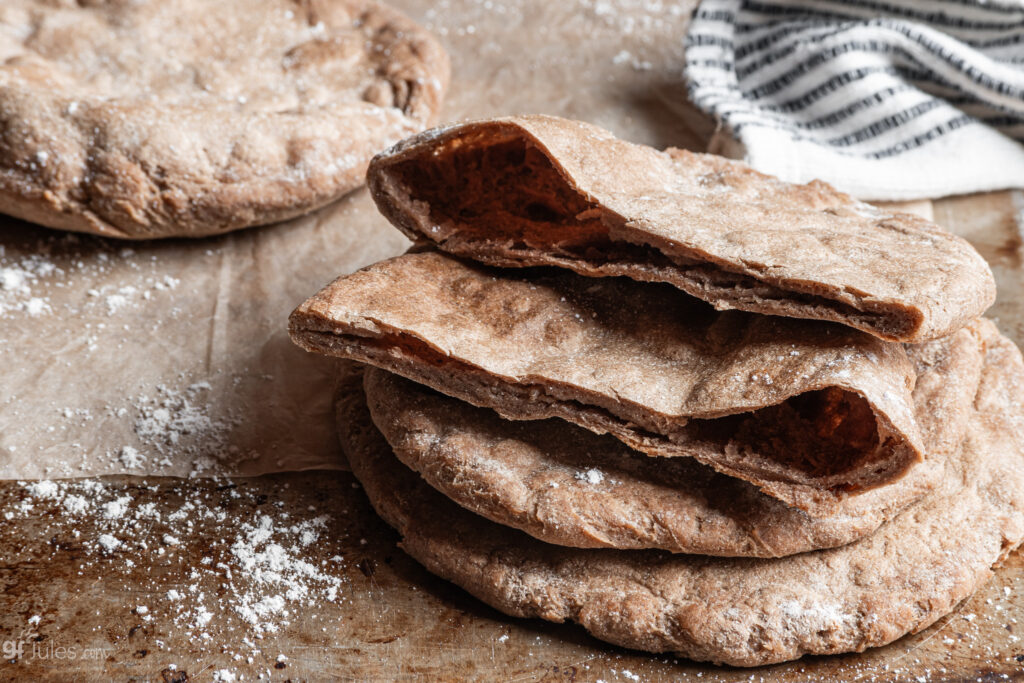
The net result is that, to get these beautiful breads to puff up enough to part the middles for soft pita bread to envelop your favorite sandwich filling, but crisp up enough on the outside to have a slight crunch and a gorgeous lightly browned hue, the dough needs to be mixed as little as possible. And the oven temperature needs to be just right — a perfect 425° F oven should do nicely.
And get those gluten free pitas close to the top heating element for maximum puffiness. I’ve learned that through many trials and errors (the error still taste yummy, too!).
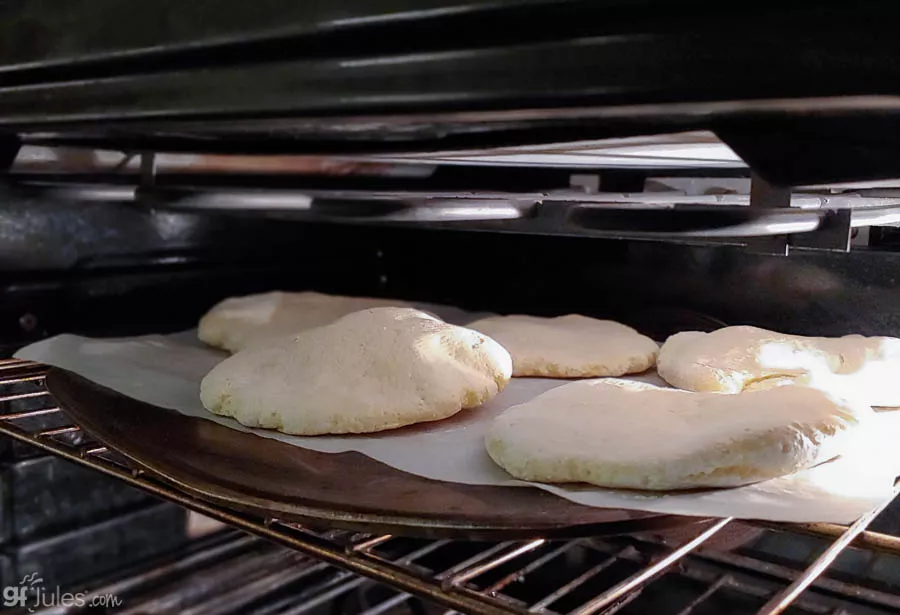
Of course I must sheepishly admit that each time I baked this gluten free pita or flatbreads recipe while I was perfecting it for you, I and all others present ate every single batch, polishing off each one of these breads, regardless of whether we deemed the results “less than perfect.”
Even when these were cooked too long or not long enough or at a not-ideal temperature, they were still amazingly delicious!
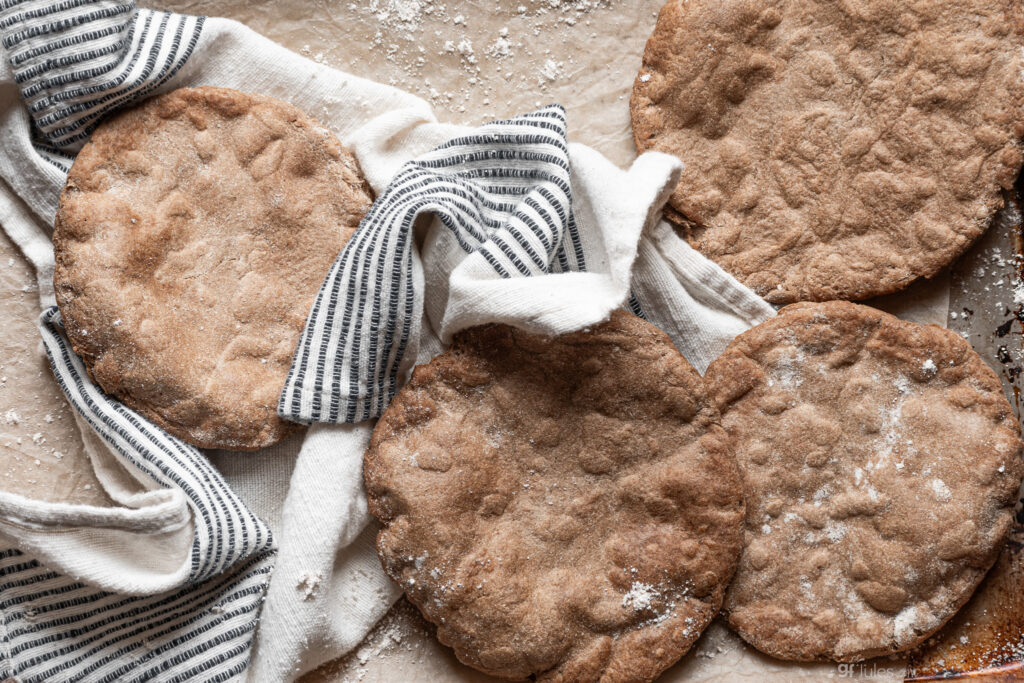
That means that even if your oven isn’t cooperating or they don’t puff up in the middles for you or they’re a touch overcooked, they’ll still be yummy. But don’t wander away from the oven for long, because it is easy to cook them way too much!
Especially because there are so few ingredients in this recipe, it is critical that you use the right ones, namely the gluten free flour specified in this recipe. I hear from folks all the time who try my recipes and use different flour blends and combinations and wonder why they don’t turn out like pictured.
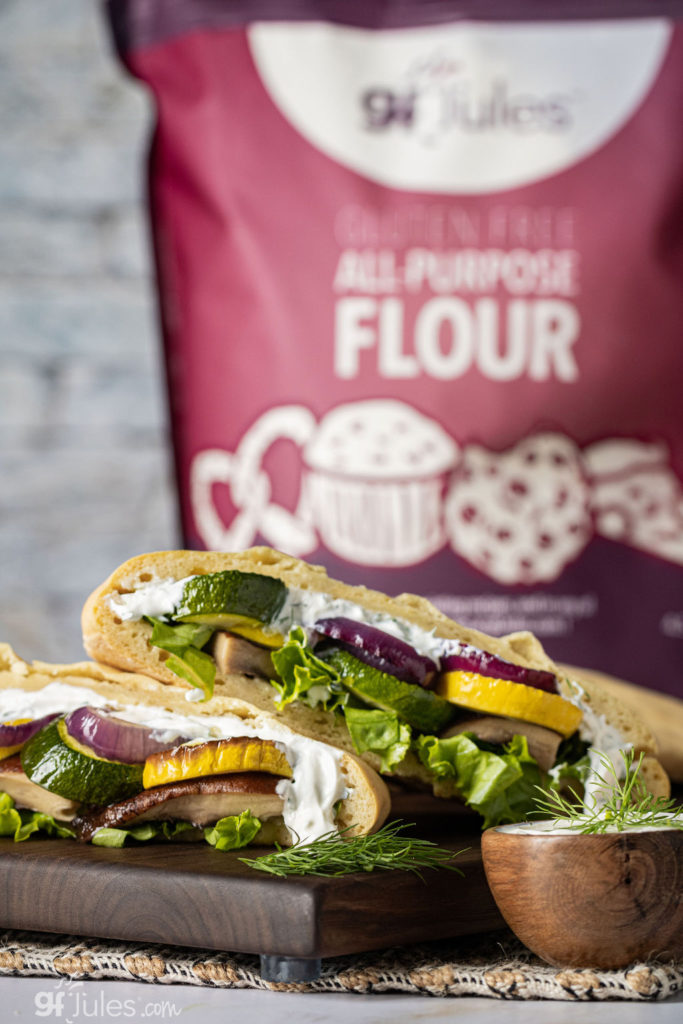
Gluten free flour blends are all very different (click here to read more about different kinds of gluten free flour); my award-winning gfJules™ Flour is fine, light, tasteless and adds stretch to recipes where ordinary gluten free flours fail.
That’s why it’s been voted #1 certified gluten free flour AGAIN in the Gluten Free Awards.
Don’t waste your time with gritty rice flour blends or funky tasting bean flours. Just don’t. If you want these yummy flatbread pitas to turn out right, use the right ingredients and you’ll be a happy baker. I promise!
So don’t be daunted by my trials and tribulations – you can bake this recipe with the right ingredients in a miscreant oven and still come out with pleasing results!
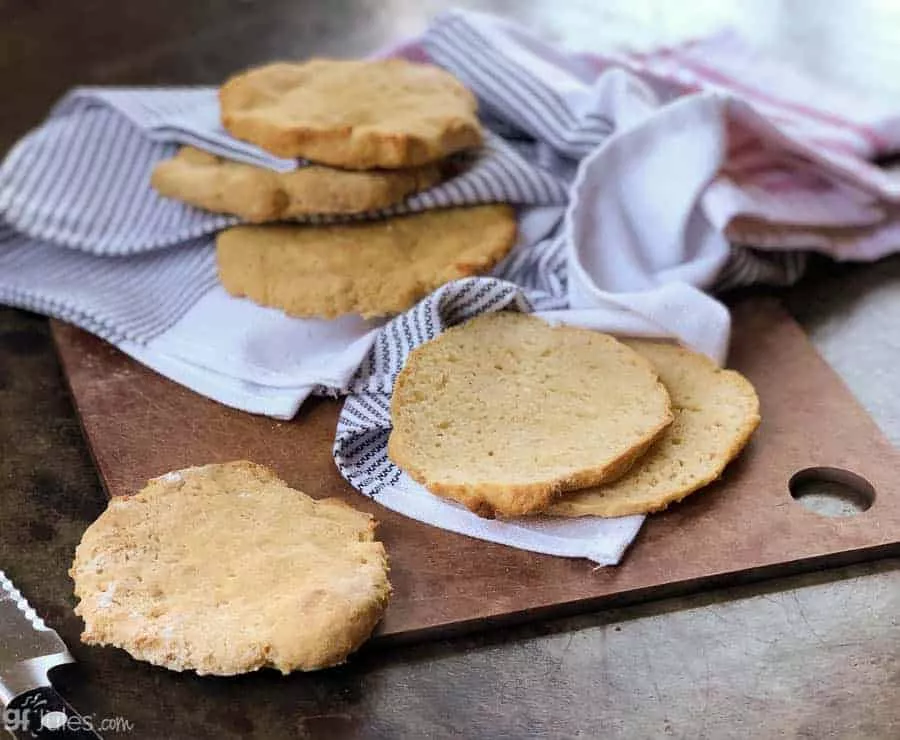
I even baked this gluten free pita or flatbreads recipe at our church with the 2nd grade Sunday School class and we all got our hands in the dough – it’s a wonderful, tactile experience that should be shared!
The recipe makes a wonderful gluten free Communion Bread option, too. Yeast-free and free of the top 9 food allergens plus gluten-free, it’s a Host that works well for intinction, as well. Even more inclusive if you use my grain-free gfJules Nada Flour!
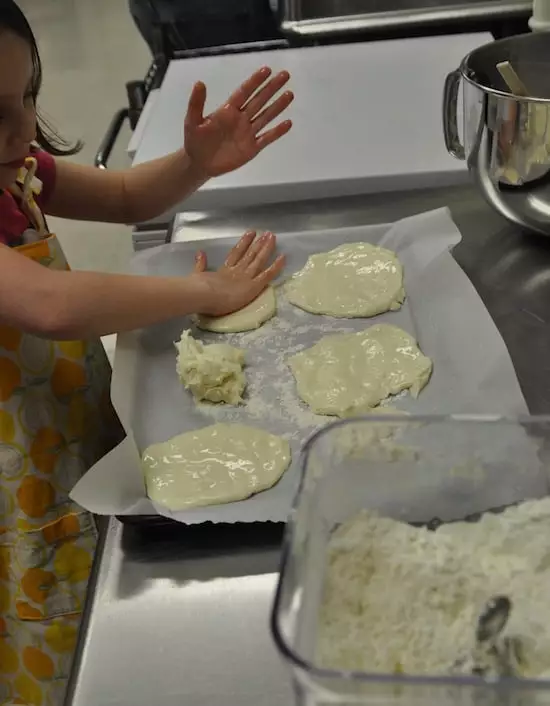
Keep in mind that if 2nd graders can spread this dough into delicious rounds, you can too. There are a few different ways of getting this dough into shape, some a bit less orthodox than others (pun intended) but none is wrong.
Beat it into shape with very well oiled hands or roll in more gfJules Flour and make it look a little neater. Again, no wrong answers.
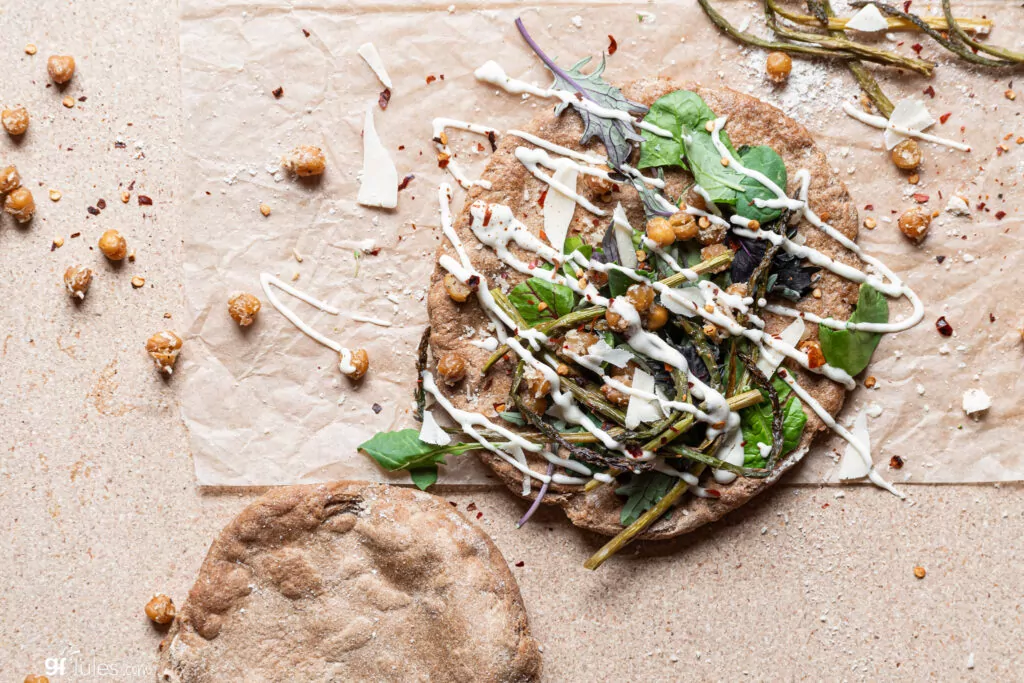
Vegan, yeast-free, dairy-free, and of course, gluten-free or grain-free, there should be nothing keeping you from making this recipe soon and often!
If you’re looking for Gluten-Free or Grain-Free Naan Breads, check out my recipe for that flatbread as well!
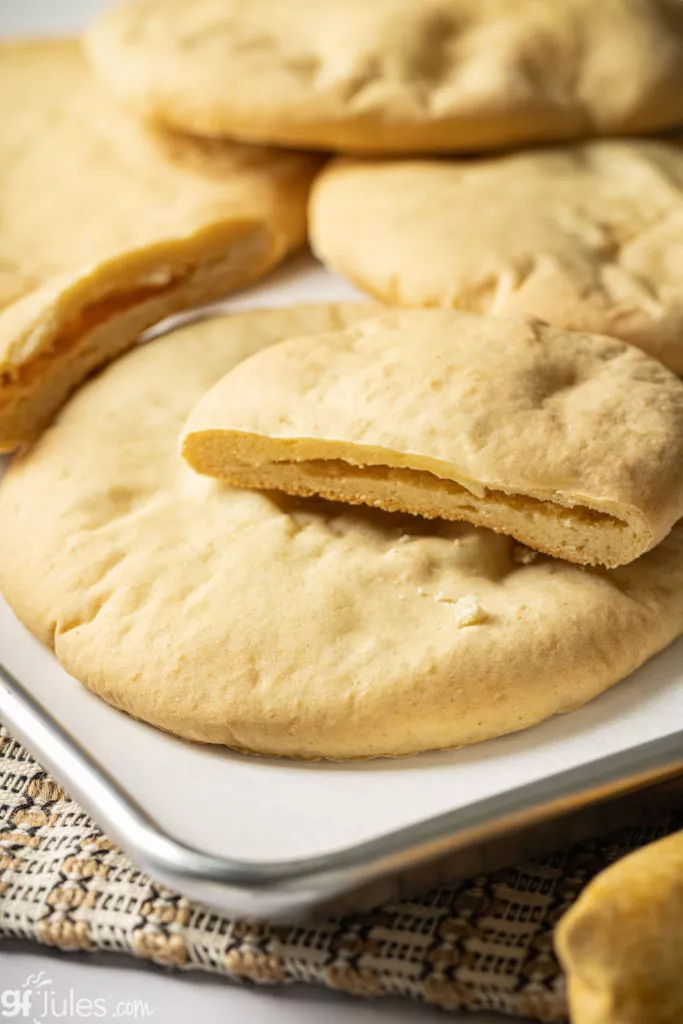
Easy Gluten Free or Grain Free Pita or Flatbreads
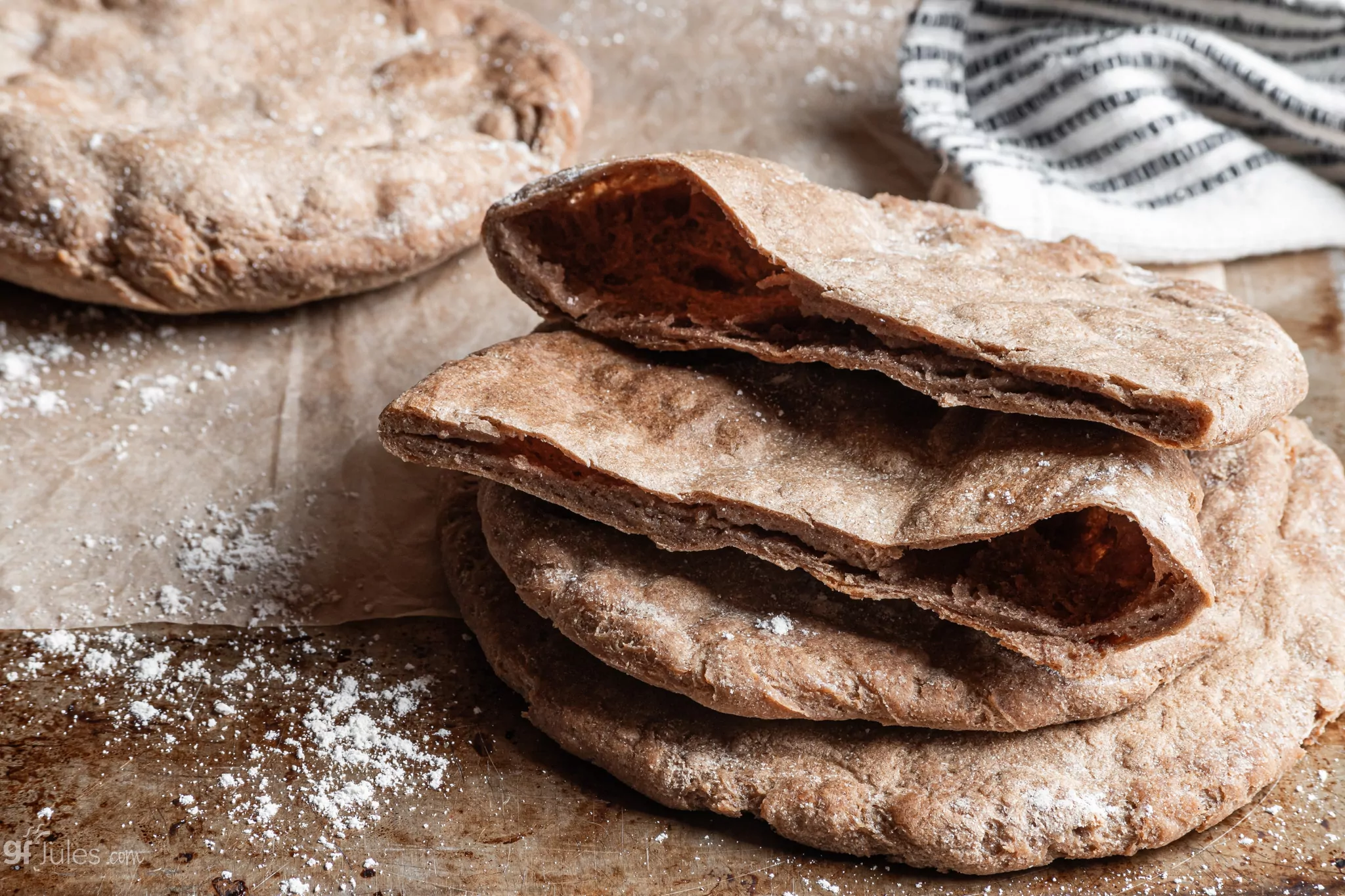
Easy Gluten Free Pita or Flatbreads
Ingredients
- 1 3/4 cups (236 grams) gfJules™ All Purpose Gluten Free Flour OR gfJules grain-free Nada Flour (192 grams)*
- ¼ cup (16 grams) instant plain gluten-free mashed potato flakes (Idahoan® Original Mashed Potatoes; or Edward & Sons™ Organic)***
- 2 tsp. baking powder
- 1/2 tsp. baking soda
- 1/2 tsp. coarse sea salt
- 1/4 tsp. fine sea salt
- 3/4 cup + 2 Tbs. warm milk (dairy or non-dairy soy, coconut, almond, etc.)
- 1/4 cup warm yogurt (dairy or non-dairy soy, coconut, almond, etc.) OR 1/4 cup milk
- 1 Tbs. olive oil vegetable oil or coconut oil (melted)
- Additional oil to brush on tops
Instructions
- Preheat oven to 425° F.
- Place baking stone or metal baking sheet in oven while it is preheating. It should be on one of the upper-most racks, but not the very closest to the top of the oven.
- Whisk the dry ingredients together in a large bowl. Warm milk and yogurt, then add with oil to the bowl and blend, just until integrated.
- Mix until the dough pulls away from the sides of the bowl. If needed, add an extra 1 tablespoon or so of milk, to help the dough to hold together well; if the dough isn't holding together and pulling away from the sides of the bowl, it won't hold together when pressed into rounds, so be sure enough liquid is added at this stage. The goal is for the dough to hold together and be slightly sticky but not wet; not dry or crumbly at all.
- Sprinkle a dusting of my gfJules™ Flour or Nada Flour onto a pastry mat or clean counter. Roll the dough in a small amount of gfJules Flour to keep it from sticking. Gently roll into a wide log and cut into 5-6 equal sized portions.
- Roll each portion in a small amount of gfJules Flour and lightly roll out in all directions to a thickness of about 1/4 inch -- no thinner, and it does not need to be even thickness; some unevenness leads to more puffiness in the baked out breads. Transfer to a piece of parchment dusted with more gfJules Flour.
- Repeat with remaining dough. Brush the tops with oil and slide parchment onto hot stone or baking sheet that has been preheating in the oven.
- Alternatively, scoop out equal portions of dough onto parchment and spread with well-oiled hands, pressing out with the palms of your hands to an uneven thickness of around 1/4 inch. Slide parchment onto hot pan.
- I recommend monitoring this recipe in your oven the first time you try it. Bake for 10 minutes, OR until the breads are puffing up and browning slightly. Flip to the other side and bake for an additional 3-4 minutes. (You may also pan saute the breads lightly to brown the high points like traditional naan baked in a tandoor oven.)
- If you tear open one of the breads, it should be fully cooked and have some pockets of air; it should not be gummy or look uncooked inside. If it is gummy or not fully cooked, return to the oven and monitor until fully cooked. That being said, these breads may appear slightly gummy when hot out of the oven; let them cool for at least 5 minutes before tearing or cutting so the structure of the breads will set first. Note the times and temperatures for your oven, so that next time you bake these flatbreads, you will know what produces the best results with your oven.
Video
Notes
** Please keep in mind that nutrition information provided is per serving, which may vary. While we have taken care to provide you with the most accurate nutritional values possible, please note that this information may differ significantly depending on the exact ingredients and brands that you choose to use to make this recipe. Additionally, where options are given for ingredients, the resulting calculation may include all ingredient options instead of only one per line, skewing the totals significantly.
I can’t wait to hear what you think!
Pin this recipe for later!
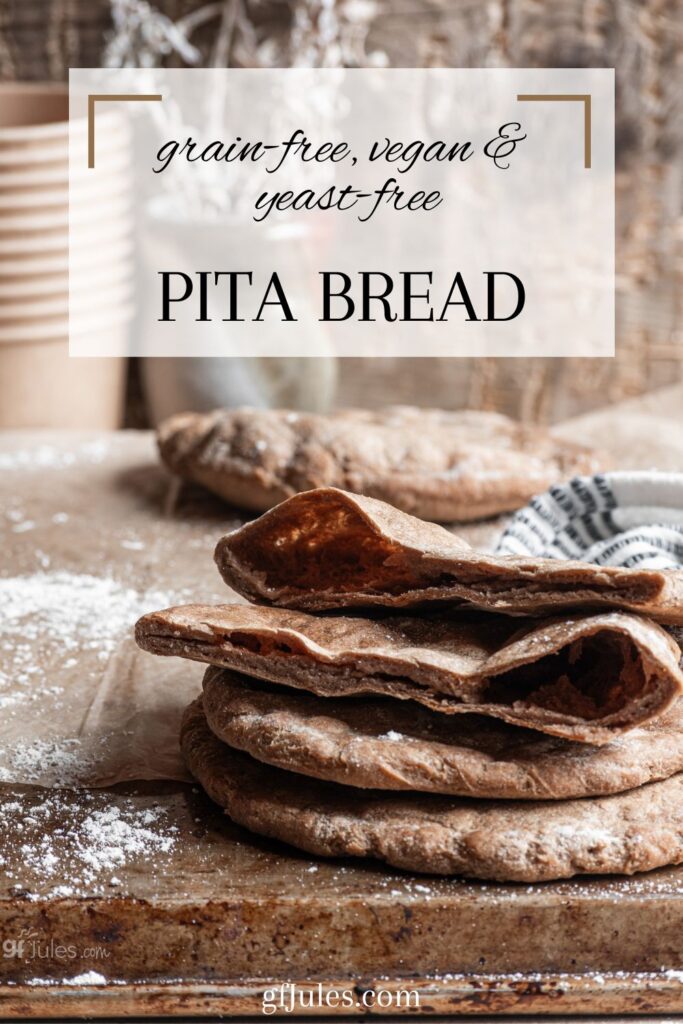
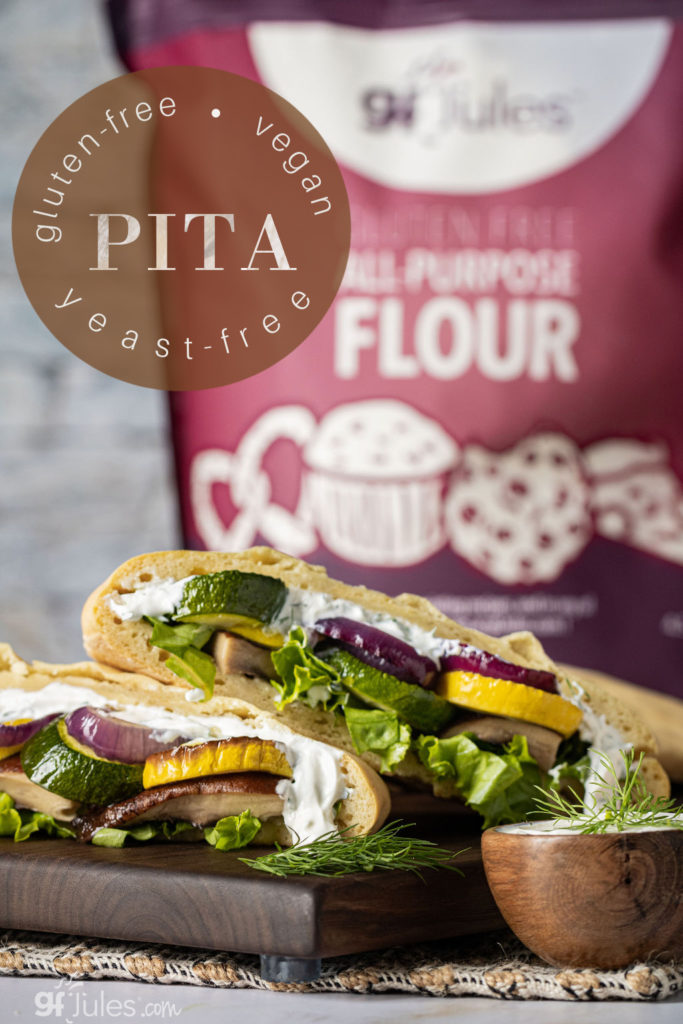
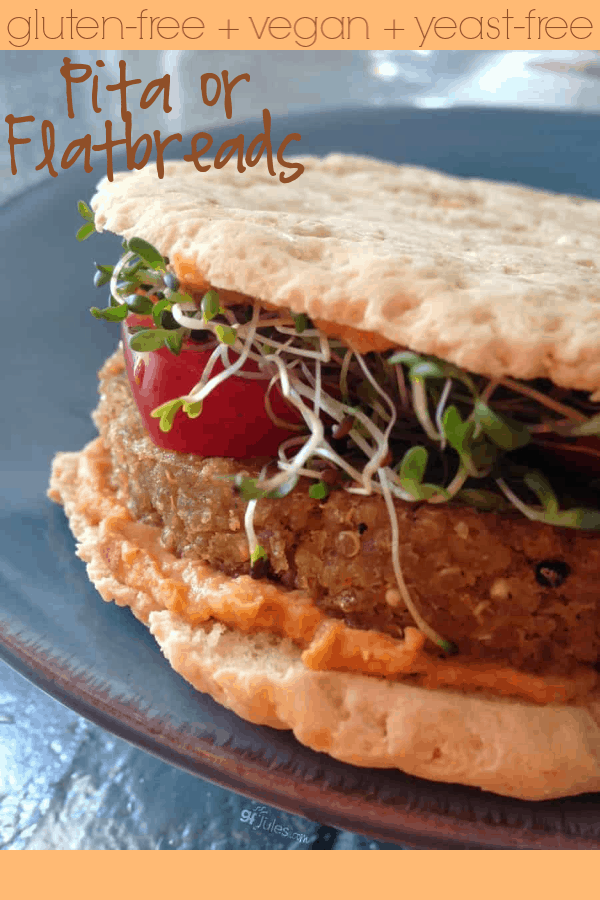
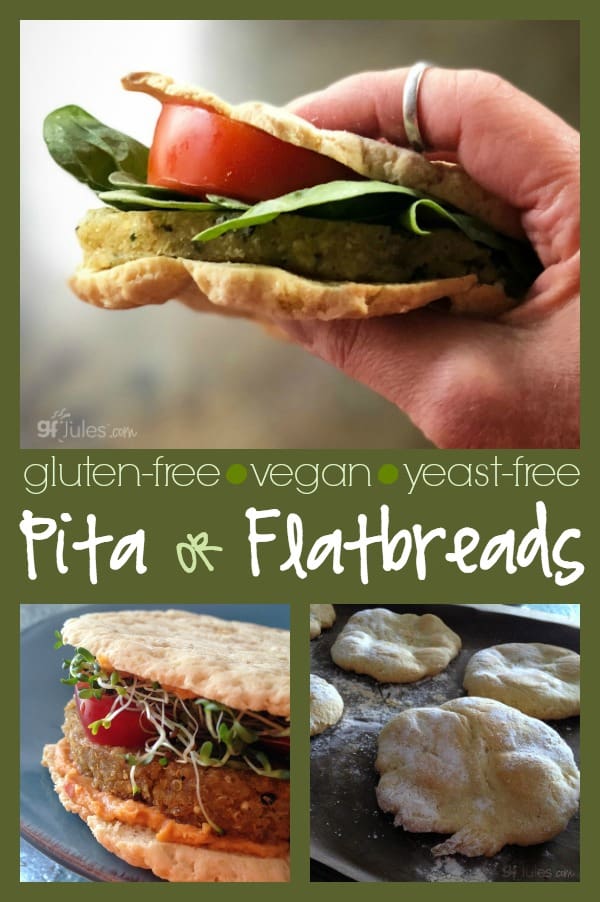
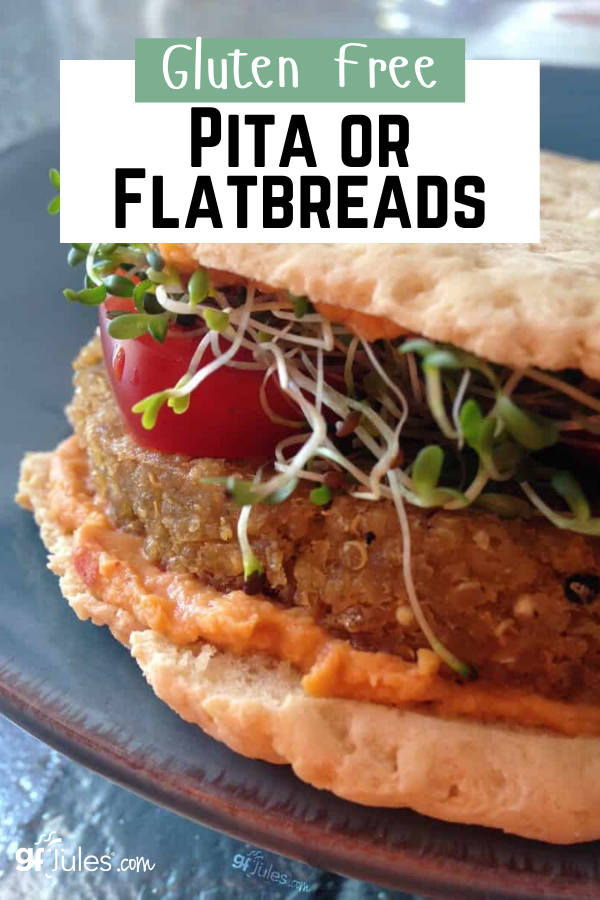
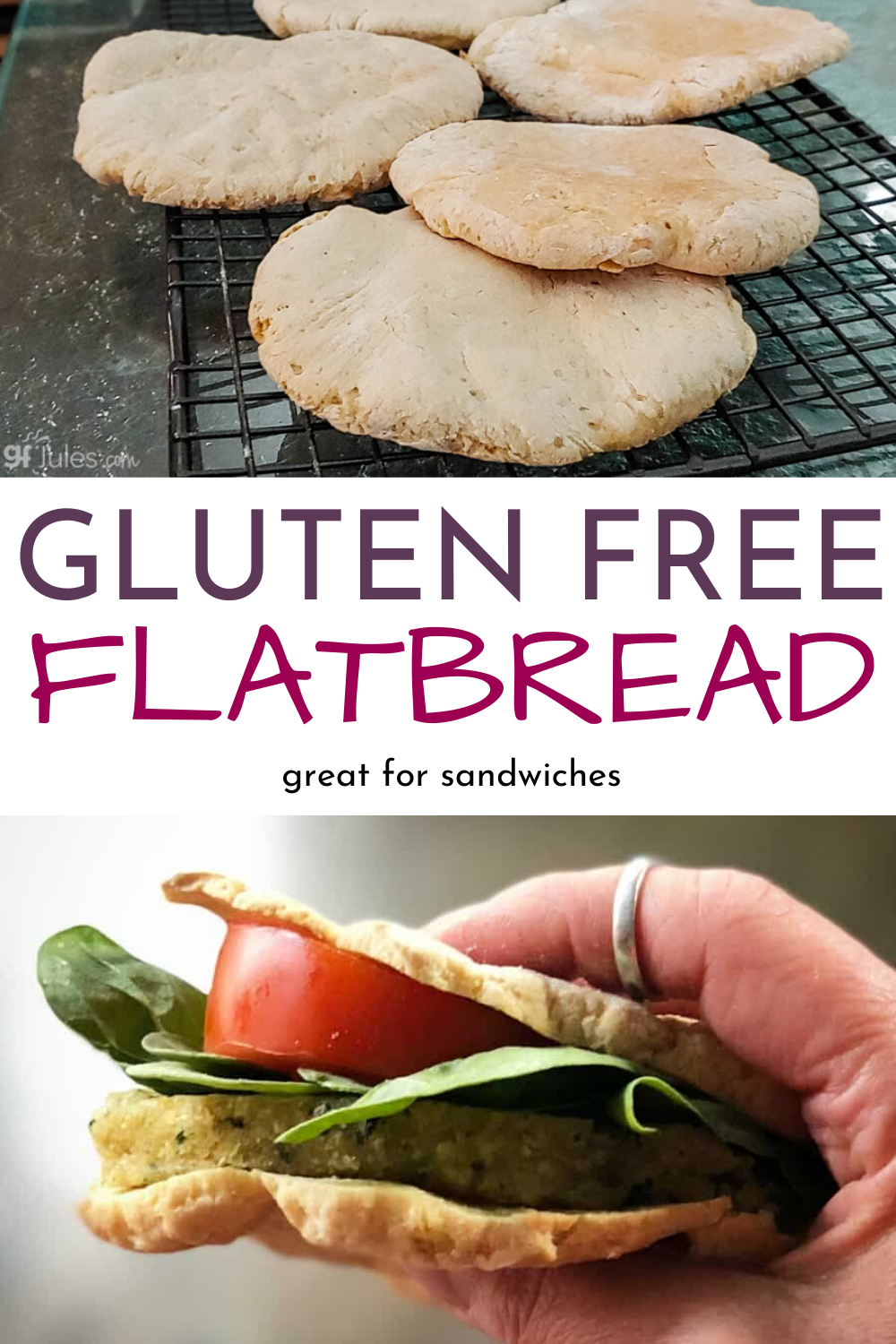
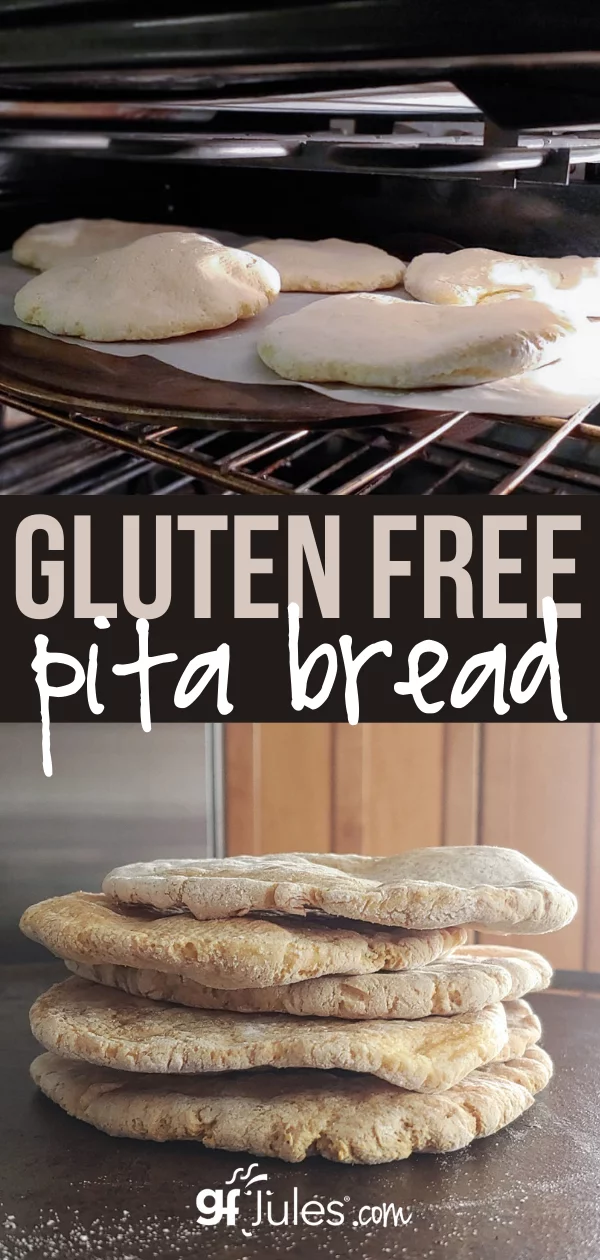
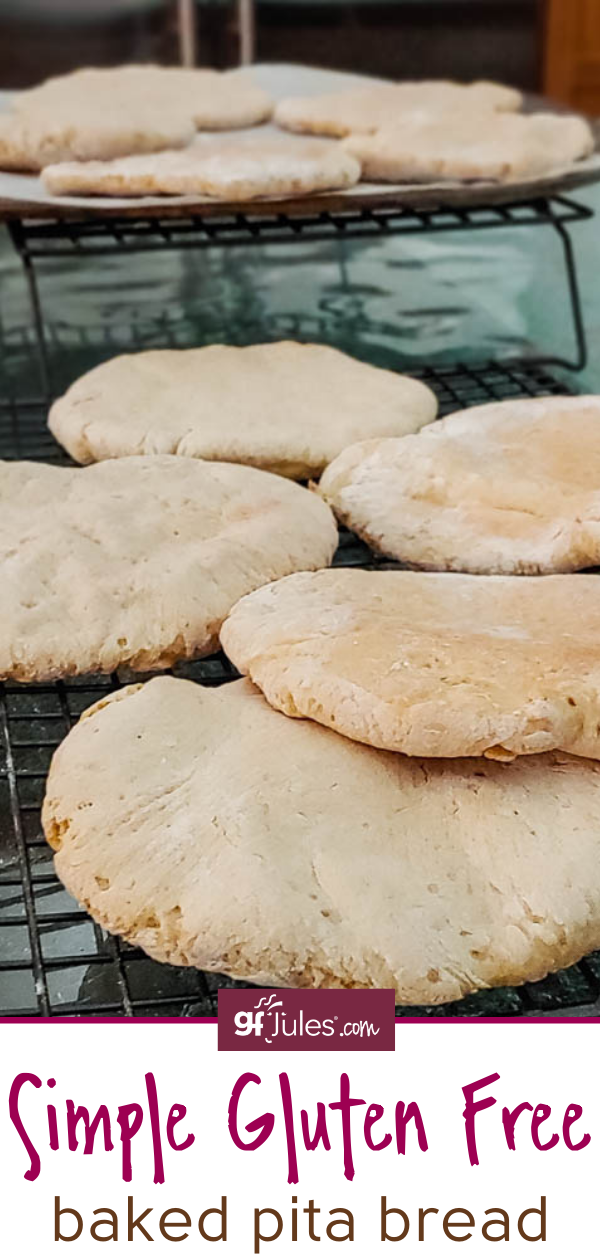

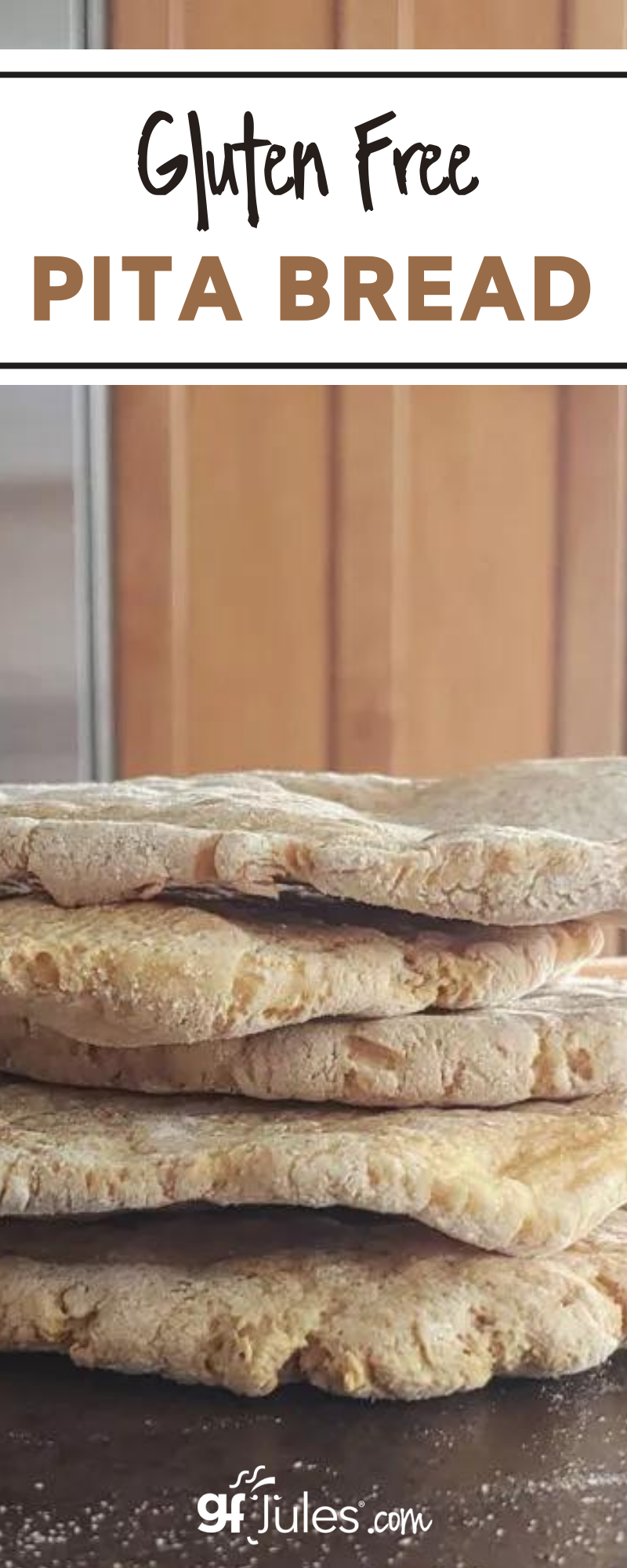
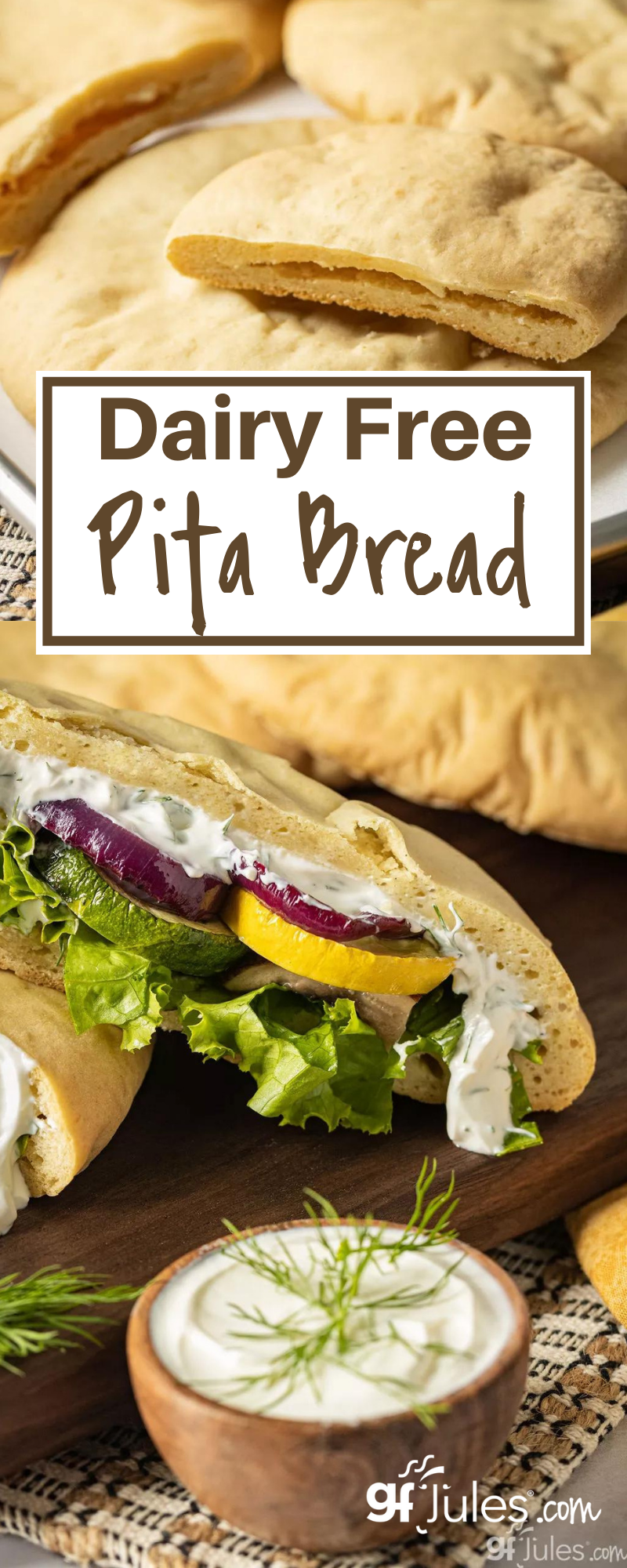


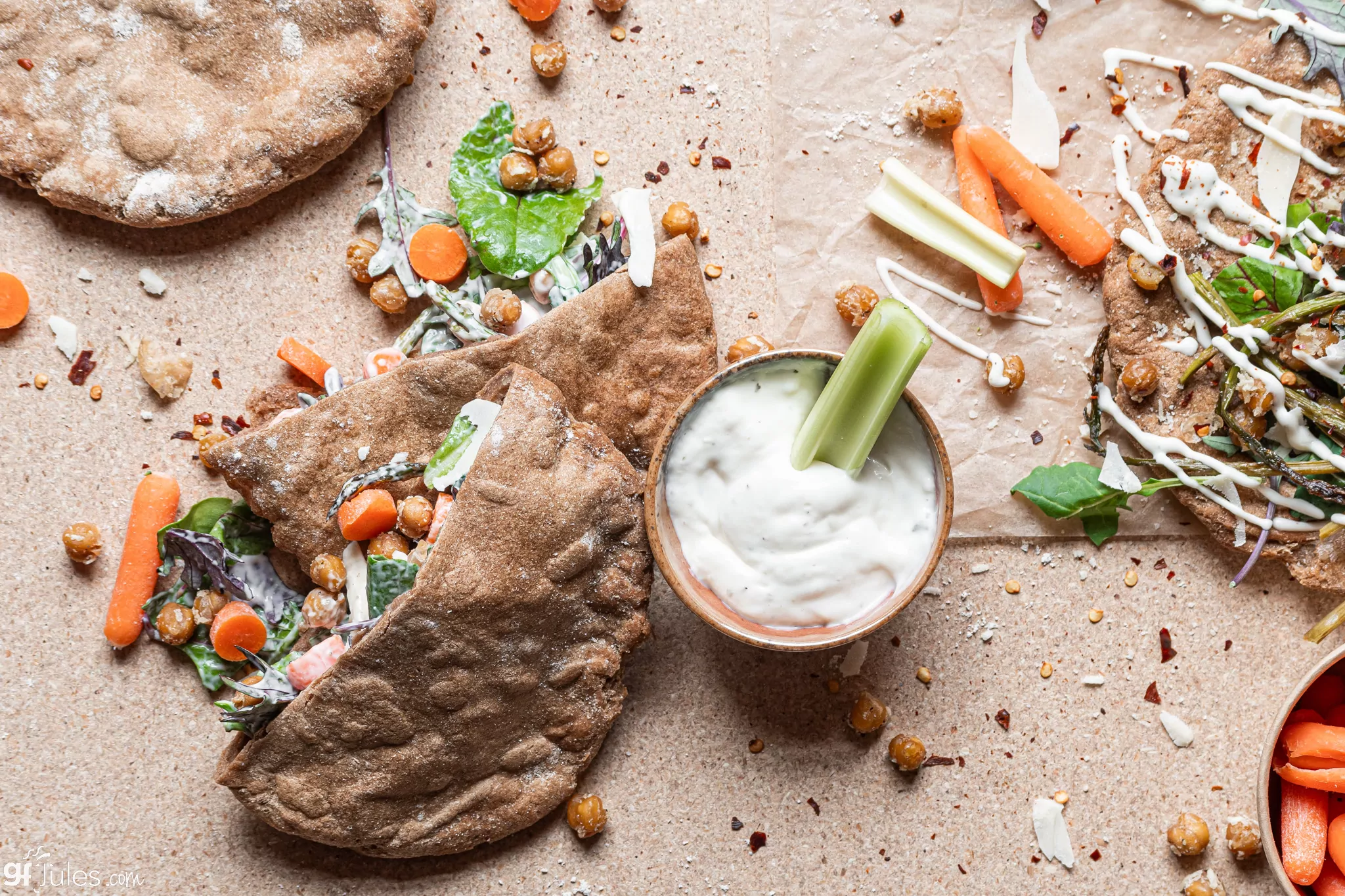
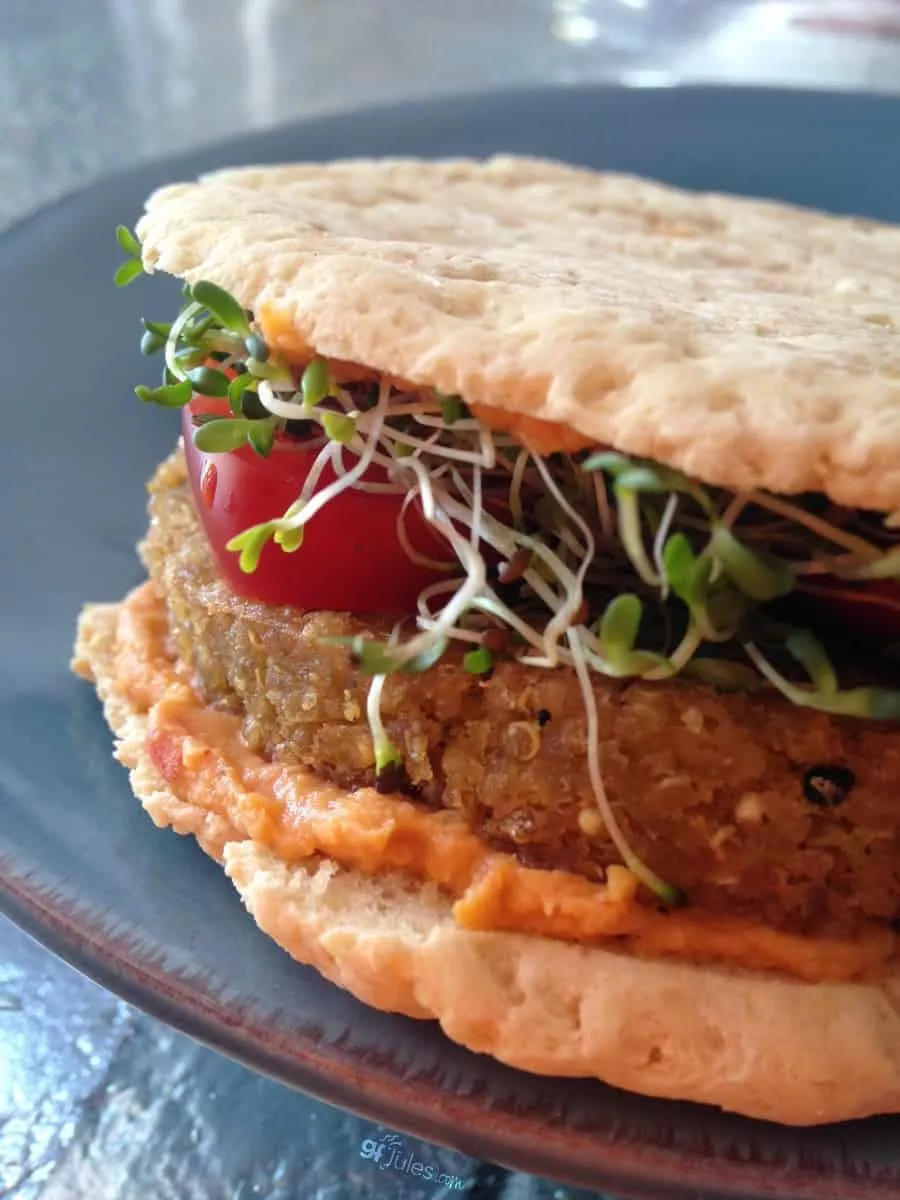
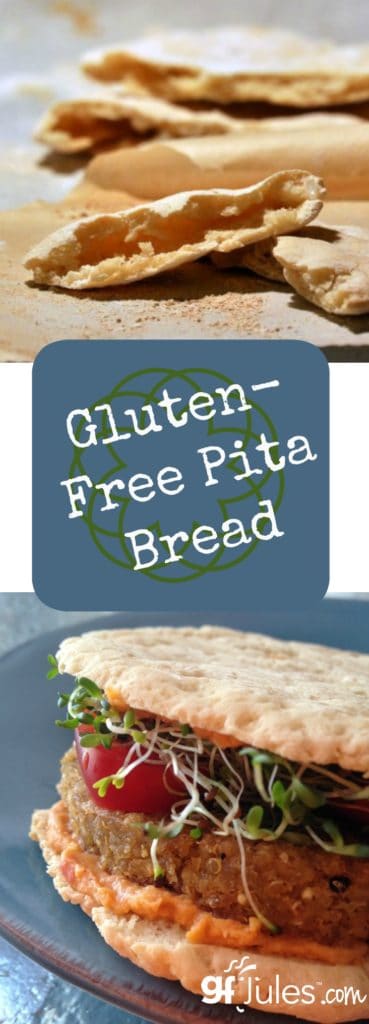
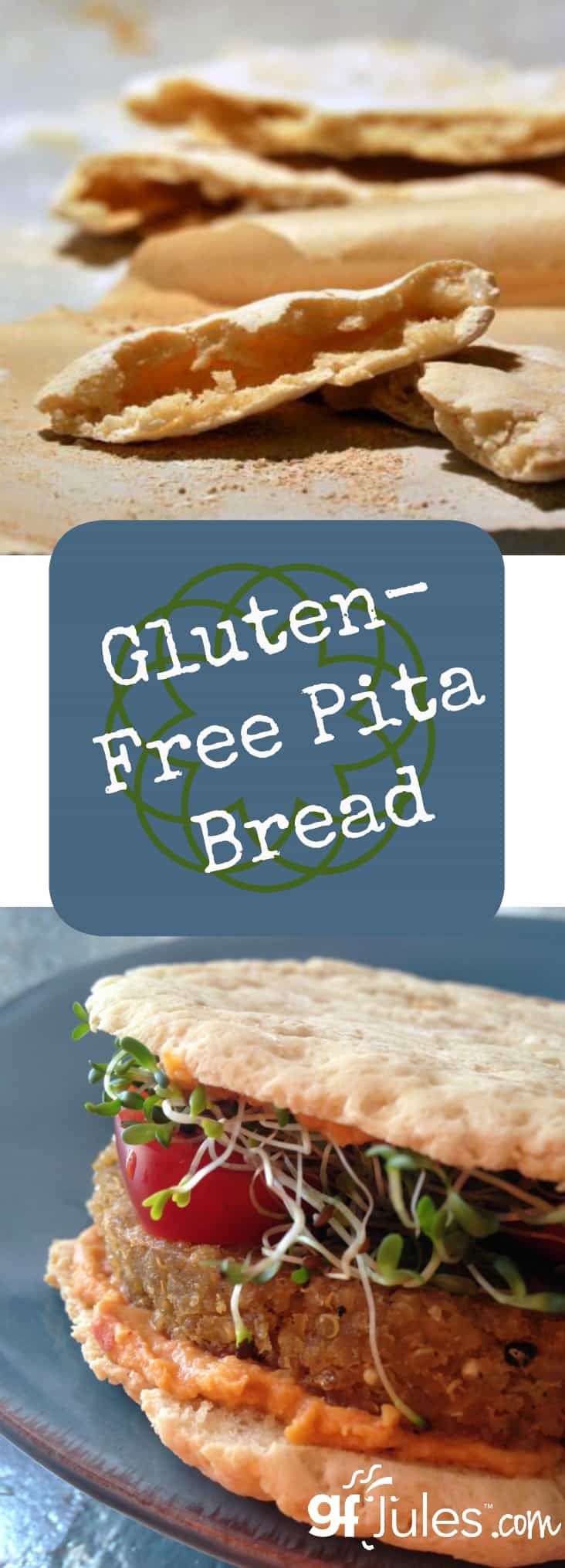











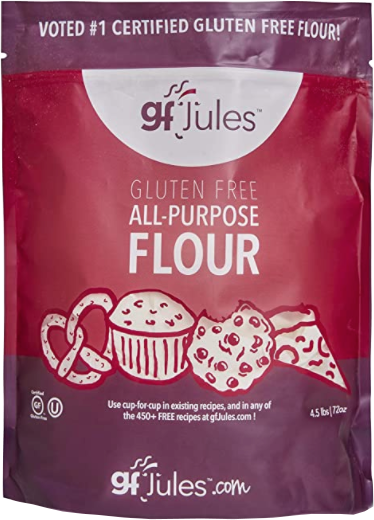
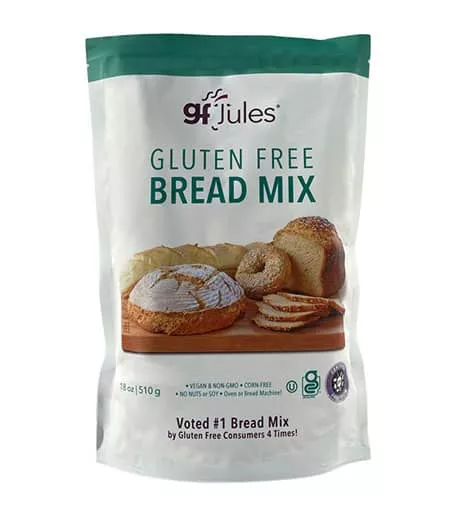
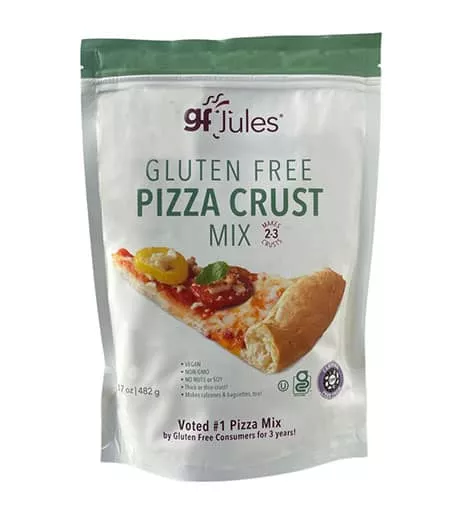
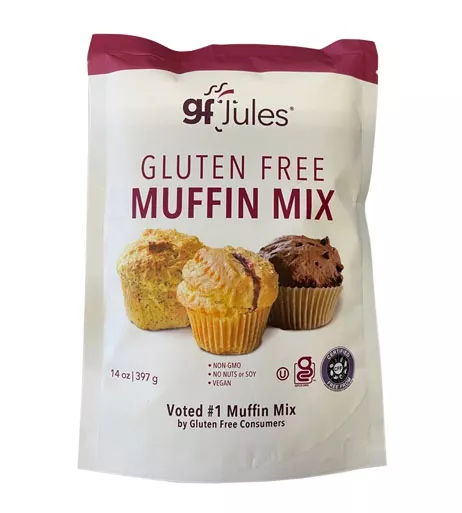
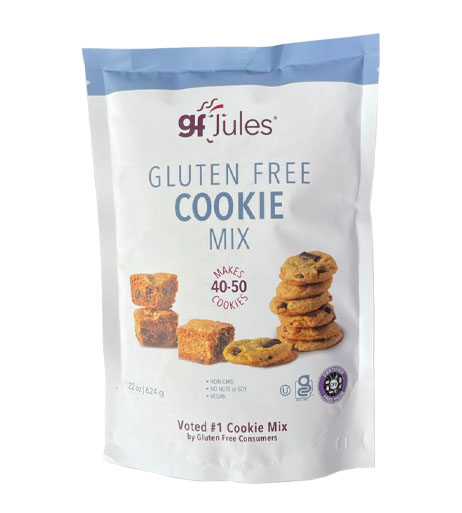

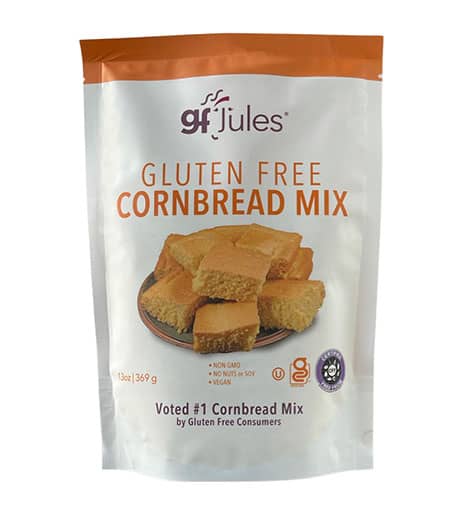



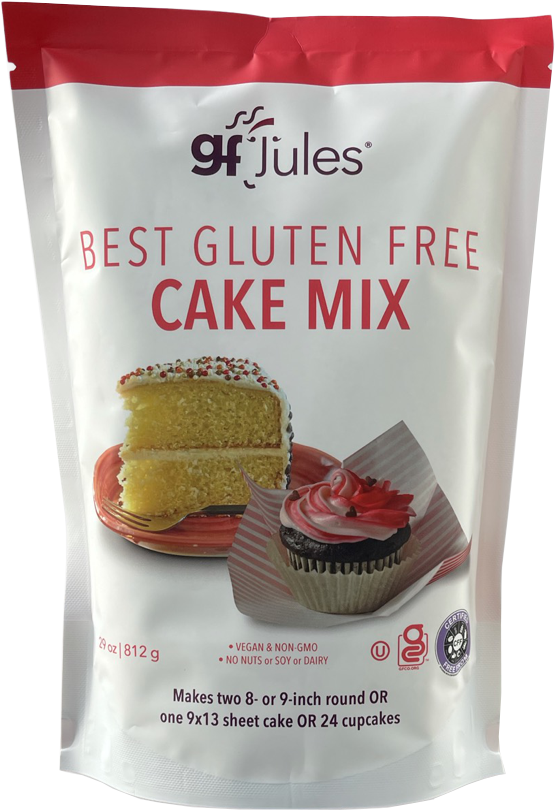
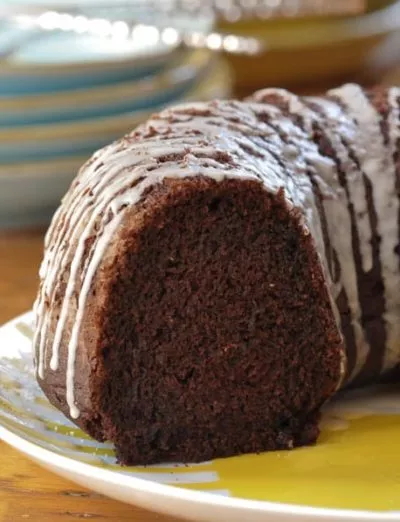
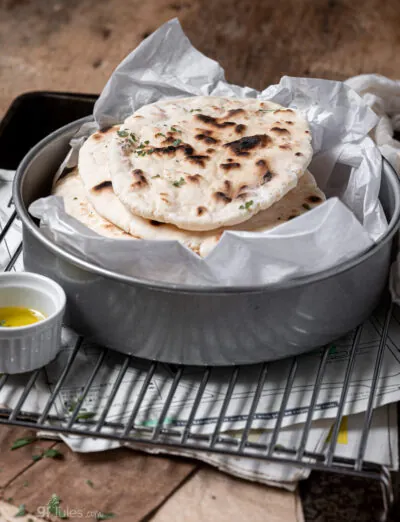
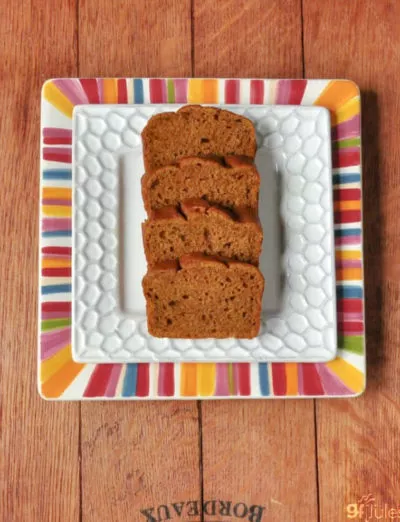
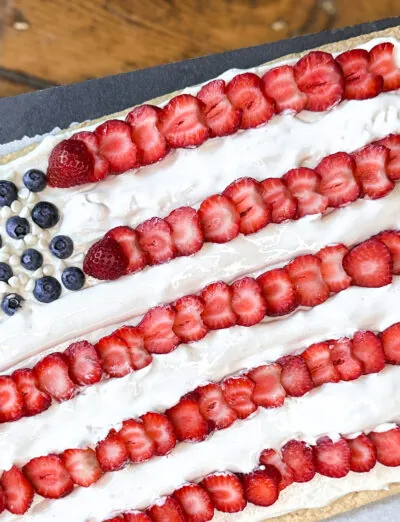


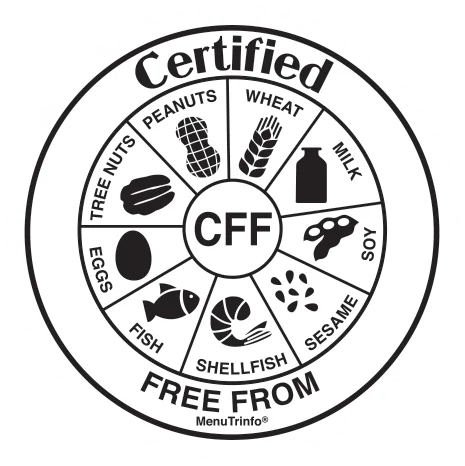
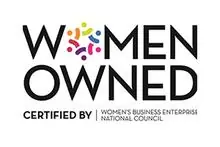
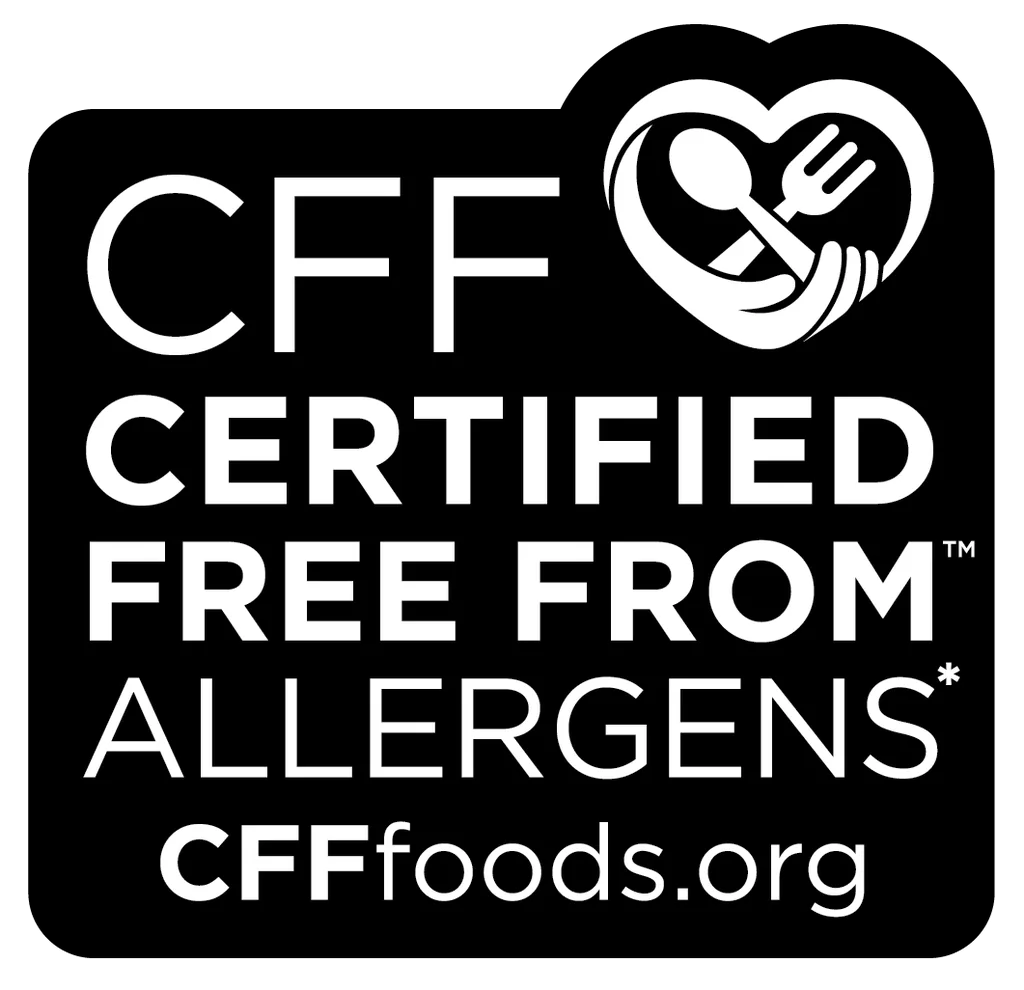
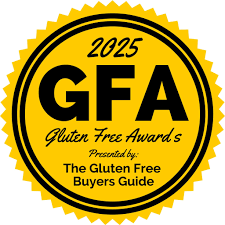

Used ingredients exactly as listed and amount of water was fine. Had hubby help me figure out what 1/4 inch was. Flavor was excellent. But they didn’t rise!! Any idea why?
Hi Kathleen, I’m so glad the flavor was excellent and they certainly look pretty! I’m not sure about the rising — are you saying they didn’t puff up at all? They don’t rise a lot — how did yours look in comparison to the photos when you cut into them? Were they still soft and pliable? If not, then I would say either that they were too thin or that they cooked too long or perhaps both. The puffing up is sometimes tricky to get and can depend a bit on your oven and the placement in the oven, but even if you don’t get any puffy parts, they should still be soft and pliable, which I hope yours were!
~jules
Hi I would like to make the Pita bread
I’m not sure what mashed potato flakes are can u please advise?
Hi Rachel, mashed potato flakes are found in any grocery store. They’re basically dried mashed potatoes that can be reconstituted into mashed potatoes and they help to provide a bit of “chew” to this bread. If you don’t want to buy them, you can simply cook a baking potato and mash it instead; add about 1/2 cup mashed potato instead of 1/4 cup potato flakes, but reduce the liquids slightly. I hope that helps!!
~jules
I’m curious if these can be cooked in a cast iron skillet instead of baked in the oven?
Hi Bridget, I have done that, yes. It’s nice because the breads get crustier in the skillet but they don’t tend to puff up as much.
~jules
I have to go get the mashed potato flakes, and then I will make this. Thank you so much for a yeast free bread. I so appreciate it.
You are so very welcome, Linda! There are many other yeast-free bread recipes on my site. Check out this post with links to more yeastless gluten free bread recipes here.
Happy baking!
~jules
Hi there. I am in South Africa and as far as I am aware do not stock mashed potato flakes. Is there any other substitute. Kind regards Michelle
Hi Michelle, you can use actual mashed potatoes in place of mashed potato flakes (reduce liquid by 2 Tbs. and add more if needed to hold the dough together at the end) or replace with an equal amount of a gluten free starch like cornstarch or potato starch is the next best option. I hope one of those works for you!
~jules
Would love to make falafels soon and try out this pita bread! Is there something I sub the plain mashed potato flakes for? Don’t have those around and would like to try these. Mashed potato and less liquid? Some other flour? Thanks for all your great recipes!
ohh.. never mind, sorry I should read the other comments first! I see it was already answered and I don’t see a way to delete my previous question : )
no worries at all, Anna!!! I hope you enjoy this recipe!
~jules
Is there something you can use to substitute potato flakes?
Hi Lili, the closest things you could try would be equal amounts of fresh potatoes, cornstarch, potato starch, white rice flour, tapioca flour, OR arrowroot. Let me know how it goes!
~jules
So when you say “warm” yogurt and milk do you mean room temp? Or heated to a warm temp. I’m new to baking and not sure if this is going to mess up the science.
Hi! So glad you asked — if you ever have any questions, don’t hesitate to inquire! In this case, I typically warm to warmer than room temp, but it would work to be room temperature; the key is not being cold so that the ingredients incorporate better. ENJOY!
~jules
This looks amazing – I will definitely be making in the next couple days. Now, I ALSO want to know about that quinoa patty in the picture. It looks perfect in that pita! Is the recipe for that on the website? I haven’t found it yet…
Hi Tracy, so glad you’re going to be making this gluten free pita recipe!!! As for the quinoa patty in the photo, that one is a Qrunch burger. ENJOY the combo!
~jules